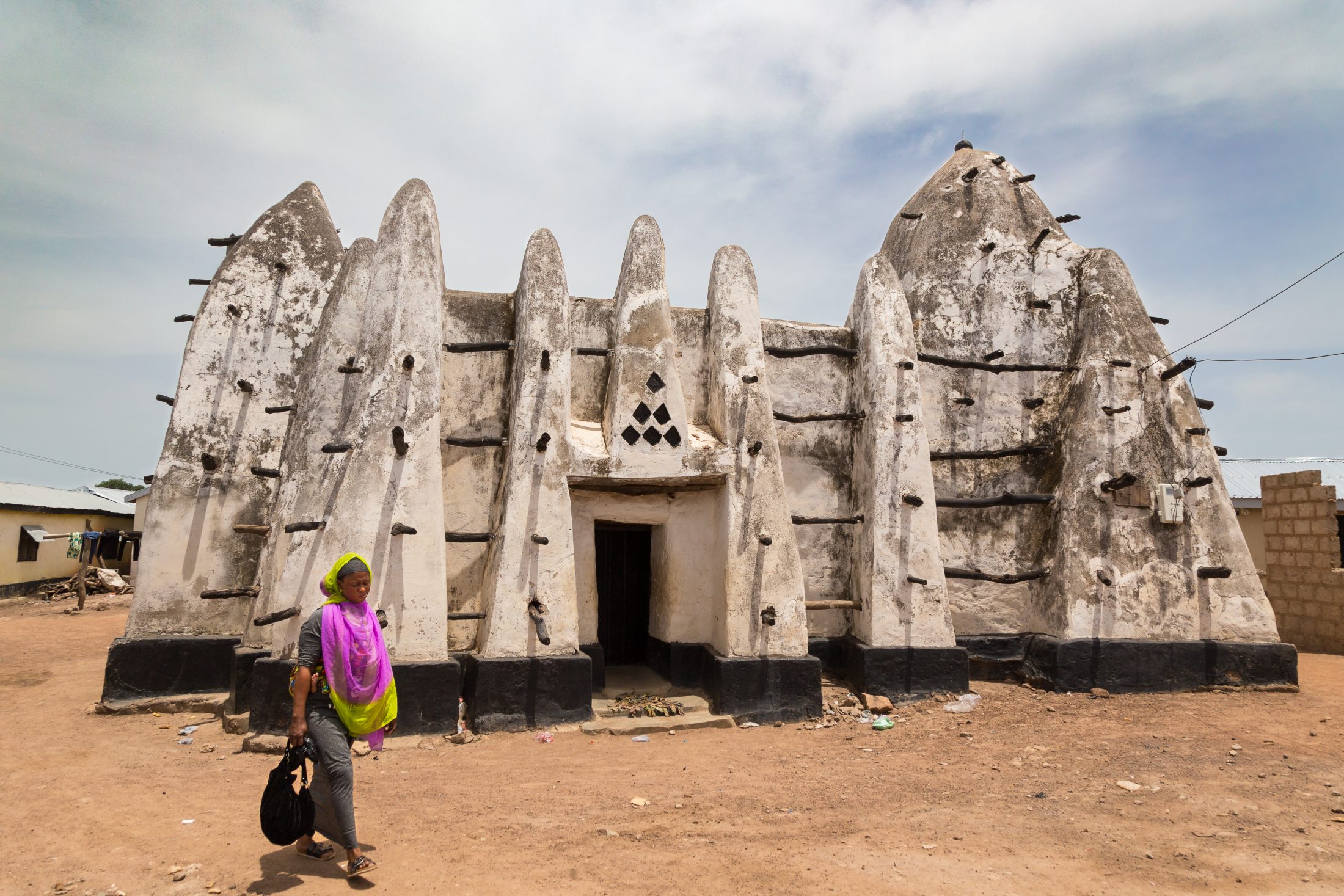The historic Bole mosque, situated in the heart of Bole in the Savannah Region of Ghana, is believed to be the oldest mosque in the country. This remarkable mosque, with its distinctive architectural design reminiscent of the renowned Larabanga Mosque, has served as a place of worship for residents and a magnet for visitors from far and wide.
Built approximately 400 years ago with mud walls and supported by wooden poles, the mosque has weathered the centuries without undergoing any significant renovation. However, the passage of time and the elements have taken their toll on this cherished piece of history.
A recent examination of the mosque’s interior revealed a troubling issue: termite infestation had compromised the wooden rafters supporting the roof, resulting in leaks each time it rained. The fragile state of the mosque was further exposed when a heavy downpour on Sunday, September 17, caused flooding in the Bole community.
News of the mosque’s precarious condition following the flooding incident drew international attention and sparked calls for its restoration. Although local residents have initiated efforts to reconstruct the mosque, they recognize that their endeavors may not suffice to preserve the over 400-year-old structure.
Deen Jabagtey, the mosque’s secretary, expressed the community’s determination to preserve the historical and architectural significance of the mosque. He emphasized the need for a modern touch to revitalize the mosque, stating, “We have tried as a community to preserve the history and structure of this mosque, but it’s time it is given a facelift with a modern touch.”
Jabagtey believes that the redevelopment of the mosque is essential to safeguard its historical value. He noted that the mosque serves as a spiritual sanctuary for many visitors who come to pray for success and admire its unique architecture. However, he lamented the lack of attention it has received from government authorities and the Ghana Tourism Authority.
The Bole mosque is part of a group of four similar mosques located in Bole, Larabanga, Maluwe, and Banda Nkwanta, all situated in the Savannah Region. These mosques feature a distinctive architectural style influenced by ancient Sudanese design, contributing to the establishment of predominantly Islamic communities in northern Ghana, particularly in the Gonja and Wala states.





